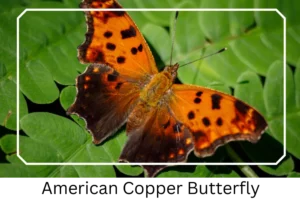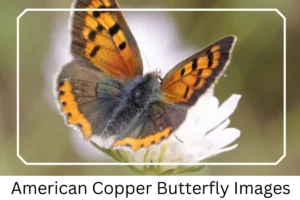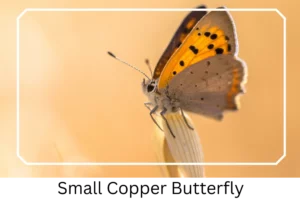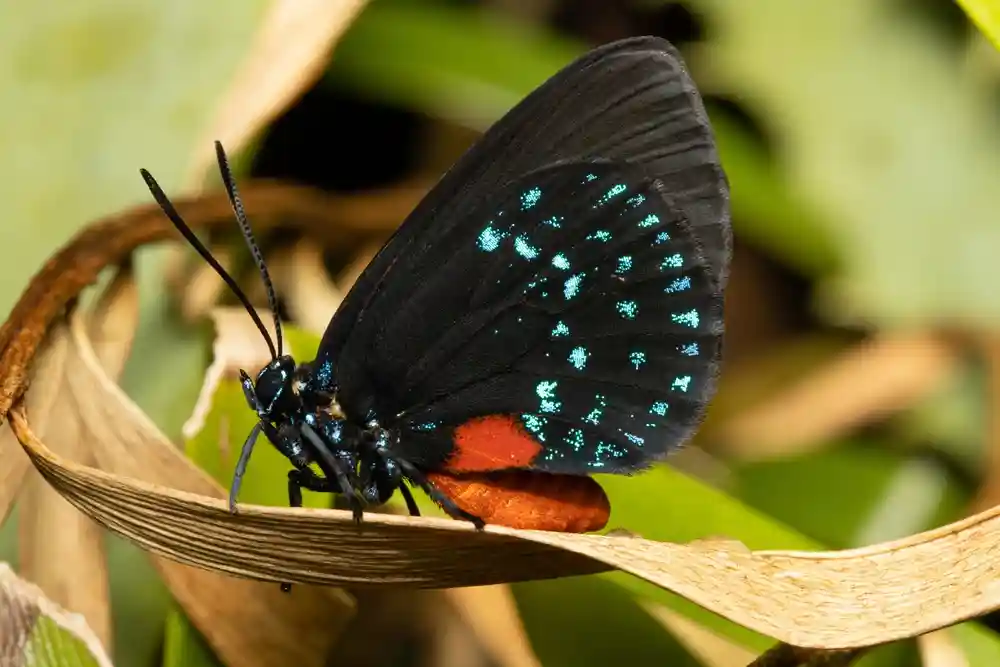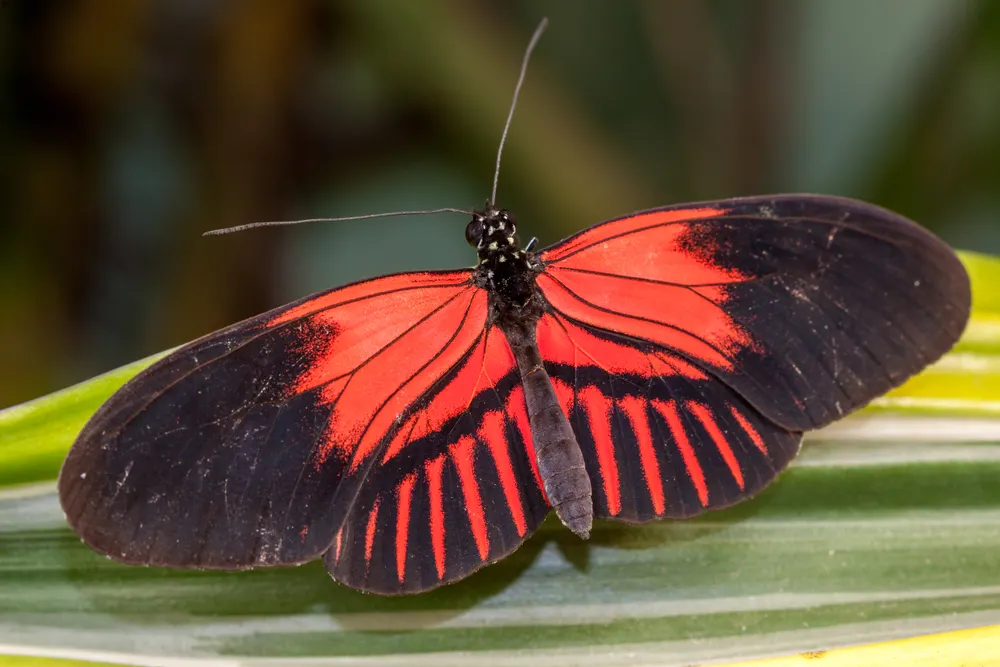American Copper (Lycaena phlaeas)
The American Copper (Lycaena phlaeas) is a captivating species of butterfly that brings life and color to various landscapes during the summer. Renowned for its vibrant appearance and active behavior, it can often be found in both natural and human-made environments, fluttering gracefully no more than two feet above the ground. This species exhibits a fascinating lifecycle and intriguing behaviors that make it a subject of interest for both casual observers and serious entomologists alike.
Scientific Classification
- Family: Lycaenidae
- Genus: Lycaena
- Common names: Small Copper Butterfly
- Scientific Name: Lycaena phlaeas
Overview
American Copper Butterflies are a visual spectacle, embodying the warmth and energy of the summer season. They thrive in a wide range of habitats, from the chalk downlands and woodland clearings to urban gardens and waste grounds, showcasing their adaptability and resilience. The lifecycle of these butterflies, from egg to adult, is a remarkable journey of transformation, marked by distinct stages that reflect the ingenuity of nature’s design.
Description and Identification
Caterpillar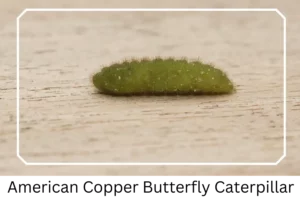
The caterpillar stage of the American Copper Butterfly features larvae with variable color patterns. These can range from a reddish hue with yellow tones to a more subdued yellowish-green accented with red markings. Measuring approximately ¾ of an inch in length, these caterpillars are covered in soft, downy hairs, preparing them for the next stage of their lifecycle.
Pupa
In its pupal stage, the American Copper chrysalis mimics the appearance of a dry seed, a clever adaptation for camouflage. The chrysalis is predominantly dark brown, adorned with lighter brown markings that blend seamlessly into the leaf litter where pupation occurs, allowing it to hibernate undisturbed through the winter season.
Adult Butterfly
Sexual Dimorphism: Sexual dimorphism is not present in the American Copper, making males and females visually similar in appearance.
Color and Appearance: The adult butterflies display a striking copper coloration when their wings are spread, embellished with dark brown spots and a dark border. The females may also feature a row of blue spots within the orange border on their hindwings. The underwing patterns mirror the top but in a more muted tone, adding to their allure.
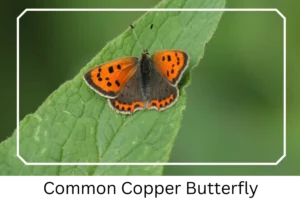
 Average Wingspan: The wingspan of the American Copper ranges from 7/8 to 1 3/8 inches (2.2 to 3.5 cm), a testament to its delicate yet robust nature.
Average Wingspan: The wingspan of the American Copper ranges from 7/8 to 1 3/8 inches (2.2 to 3.5 cm), a testament to its delicate yet robust nature.
Flight Pattern: These butterflies exhibit a fast and erratic flight pattern, interspersed with moments where they glide or hover in the air, a mesmerizing dance that captivates onlookers.
Eggs
The laying of pale green eggs, one at a time on the host plant’s leaves, initiates the lifecycle of the American Copper. This meticulous process ensures the survival and continuation of the species.
Quick Facts | |
| Distribution | Found across Asia, Europe, North America, and parts of North Africa, extending south to Ethiopia. |
| Habitat | Prefers chalk downlands, woodland clearings, churchyards, heathland, and even urban areas. |
| Lifespan of Adults | Estimated to be around two weeks. |
| Host Plants | Favors plants from the buckwheat (Polygonaceae) family, such as sheep sorrel, curled dock, and Oxyria digyna. |
| Adult Diet | Primarily feeds on the nectar of flowers. |
How to Identify American Copper Butterfly?
Identifying the American Copper Butterfly in your garden or during a nature walk can be a rewarding experience. Look for the vibrant coppery-red wings with dark brown spots, which are unmistakable when the butterfly is at rest or in flight. The underside of the wings, visible when closed, showcases a pattern similar to the topside but in a paler hue. Additionally, the presence of blue spots on the hindwings can indicate a female. Observing their unique flight pattern, which combines rapid movements with sudden glides, can also help in identification. Familiarize yourself with their preferred habitats, such as open fields and gardens, especially where you find plants from the buckwheat family, their known host plants.
Did You Know?
- The variant of the female American Copper with additional blue spots on the hindwings is known as caeruleopunctata.
- American Coppers are considered the most aggressive among their family, with males often seen chasing away intruders, including other butterflies and even birds, that venture too close to their territory.
- Despite their small size, American Coppers can traverse considerable distances, showcasing their endurance and exploratory nature.
Conclusion
The American Copper Butterfly is more than just a beautiful visitor to our gardens and natural spaces; it’s a symbol of the intricate balance of ecosystems and the marvel of evolutionary adaptation. Understanding and appreciating these creatures can enhance our outdoor experiences and inspire efforts towards conservation and biodiversity.
American Copper Butterfly Pictures

Scientific Classification

- Family: Lycaenidae
- Genus: Lycaena
- Common names: Small Copper Butterfly
- Scientific Name: Lycaena phlaeas

